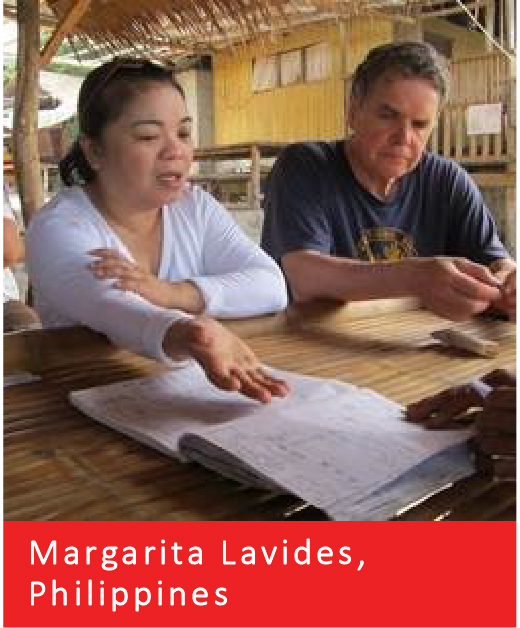Margarita Lavides, Philippines
Doctorate in Marine Science University of Newcastle, United Kingdom 2005-2009
Margarita Lavides emerged as an international expert in marine conservation as a result of her IFP experience. In 2010, Margarita earned an award for Outstanding Scholarly Work for Science and Engineering for her doctoral research in marine science at the University of Newcastle and published a prize-winning article on finish conservation in Bohol, Philippines in the Cambridge Journal of Environmental Conservation.
“IFP provided me with the skills and knowledge — and more importantly, the network — that led to a globally competitive science-based conservation practice. I am able to translate science into a practice that benefits the poor fisher communities I serve.”
Because of the education she received through IFP, Margarita claims she “gained an added profile that earned [her] the credibility and trust of people and organizations at both [the] national and global level.” When asked why she decided to leverage this profile as an international marine conservation expert to advance causes back in the Philippines, Margarita explained, “It’s like a child who thought that she found the best lesson ever from her schoolteacher and was excited to share with her parents and siblings back home.”
However, marine conservation policies, particularly in the Philippines, are dependent on the researcher’s ability to secure adequate funding. For example, Margarita and her former PhD supervisor, Nick Polunin, codirected a Darwin Initiative Project to understand the relationship between fishing patterns and local reef fish extinction in the Philippines. To sustain the program, Margarita and Prof. Polunin were able secure a $450,000 grant from the British government. Because of the funding, the project produced research that was included in the National Action Plan to Prevent Species Extinction and informed local legislation protecting certain fish from extinction. Leveraging her international credibility as a marine conservationist, Margarita was able to raise an additional $1 million for the project through the United Nations Development Program – Global Environment Facility. The continued project led to more fish being caught, better compliance of fishery regulations, and increased income for local fishermen.
